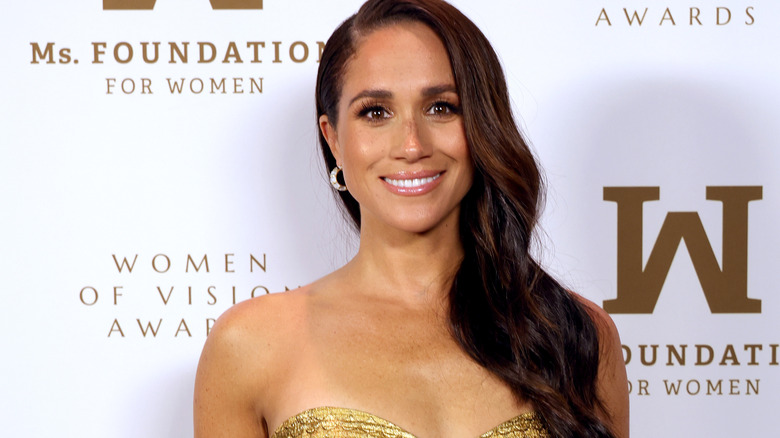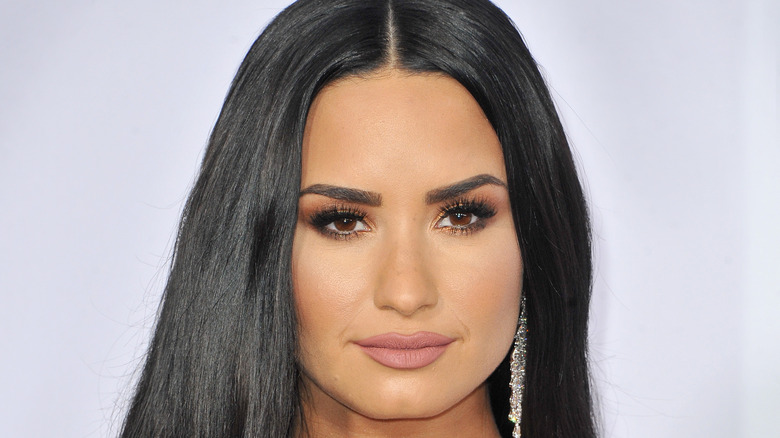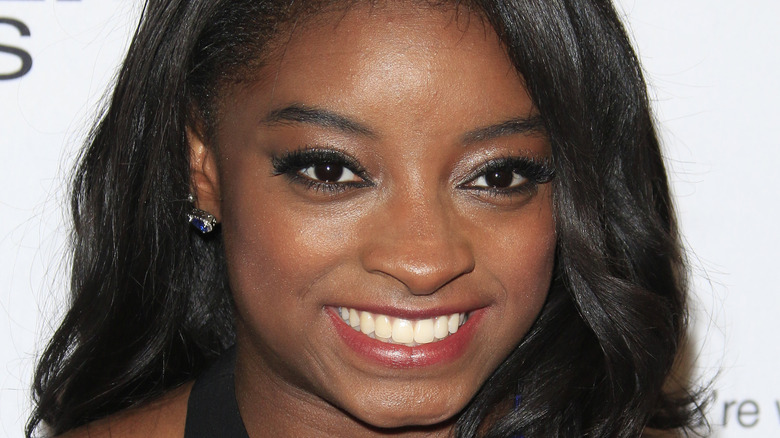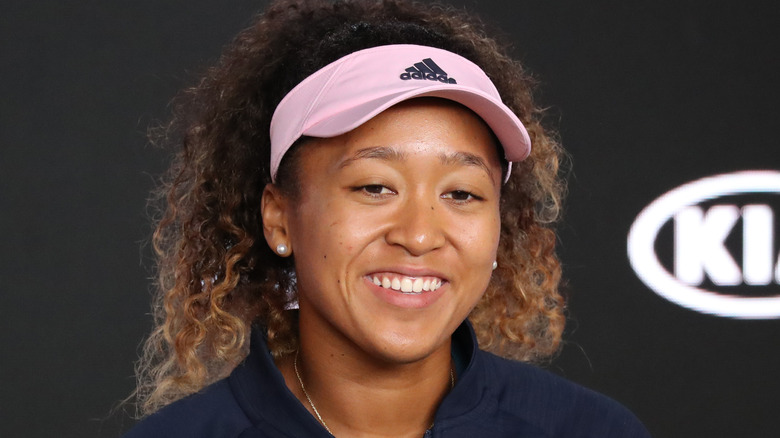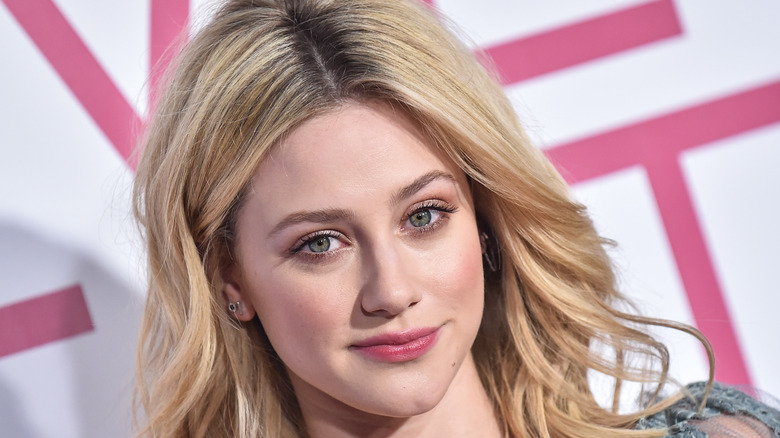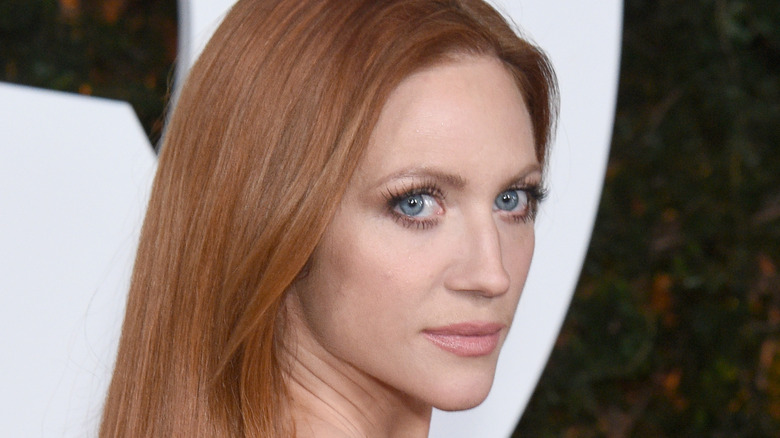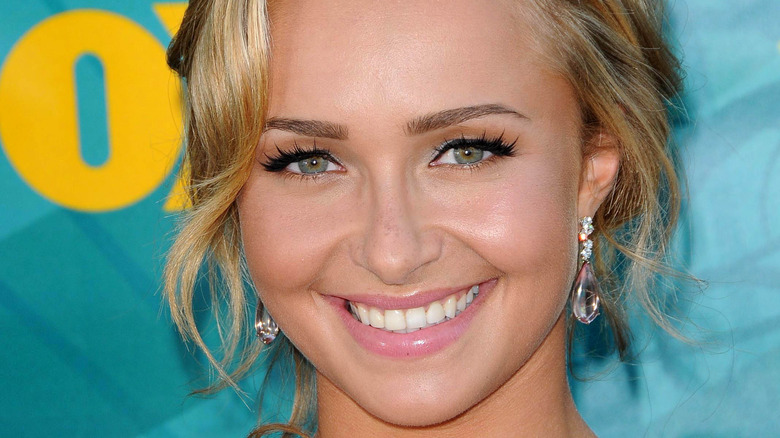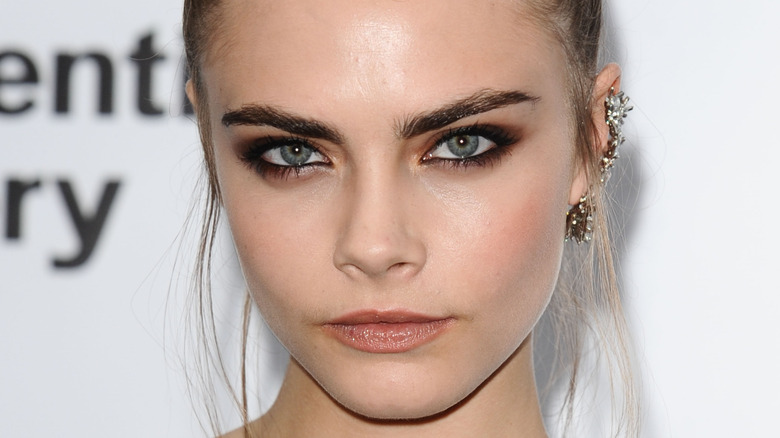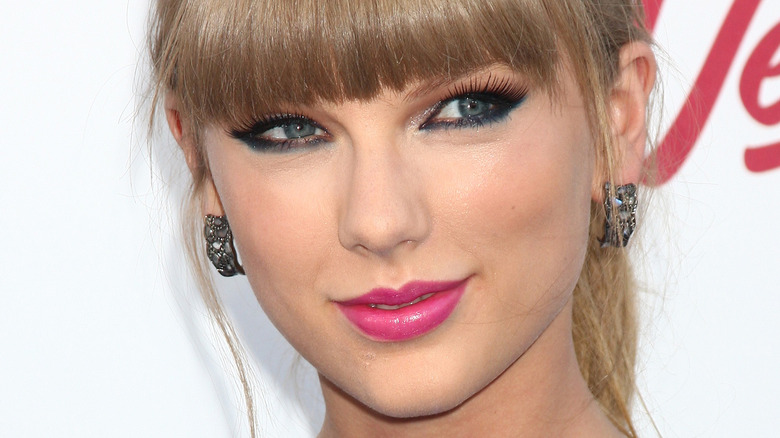9 Celebrities Who Were Villainized For Their Mental Health (And What We Can Learn From It)
For an outsider witnessing a glittering world of fame and fortune, it can be hard to remember that celebrities are only human. Behind the glamour of the entertainment industry lies a dark reality for many female celebrities who dare to reveal their battles with mental health. Despite their fame and success, these remarkable women often find themselves facing a different kind of spotlight — one that casts them as villains for daring to speak out about their inner struggles.
In a society that tends to prioritize perfection and conformity, these courageous women found themselves confronting the stigma of mental illness head-on, risking their public image to shed light on the often-neglected topic. Mental health is complex and diverse, yet the media tends to simplify it with harmful stereotypes. These women are often unfairly reduced to "crazy" or "unstable" labels as if their mental health challenges define their entire identity. This trivialization perpetuates stigmas and prevents meaningful conversations about such important topics. Howard Liu, M.D. and Chair of the Department of Psychiatry at the University of Nebraska Medical Center told Forbes, "Mental health is still stigmatized because we associate it with weakness." He later added that he loves it when celebrities, "tell their own mental health stories."
Ahead, we dive into the stories of female celebrities who have been unfairly villainized for speaking out about their mental health while challenging the norms, and breaking down barriers that prevent open conversations about this incredibly important part of the human experience.
Demi Lovato
In the world of celebrity, Demi Lovato has experienced firsthand the immense pressure to be the epitome of perfection for her fans. In an interview with InStyle, she mused, "I look at my fans as like family, but because I had been so open and honest about the things that I had dealt with, I felt like I had to be this perfect role model." With the glare of the spotlight comes huge expectations. Like many former child stars, Lovato found herself caught in a delicate balance between being a role model for the younger generation and a normal, flawed human being. The pressure to maintain an image of absolute perfection often left Lovato little room for vulnerability or the public acknowledgment of struggles. Per People, Lovato told Elvis Duran in 2017, "I think it's very important that people raise the importance of mental health because it's something that's so taboo to talk about."
In 2018, Lovato experienced a near-fatal heroin overdose that was splashed across the news under highly speculative headlines. In her documentary "Dancing with the Devil", her friend and sober coach Sirah brutally claimed, "The poster child of perfection and mental health...is such a dangerous slippery slope."
Lovato's commitment to transparency has led her to push back against unrealistic standards, bravely sharing her personal battles and reminding us all that perfection is as unattainable as landing a rocket on the sun. In doing so, she challenges the narrative that celebrities must always be picture-perfect, inspiring her fans to embrace their imperfections and find strength in their vulnerability.
If you or anyone you know needs help with addiction issues, help is available. Visit the Substance Abuse and Mental Health Services Administration website or contact SAMHSA's National Helpline at 1-800-662-HELP (4357).
Meghan Markle
While marrying a prince sounds like the stuff of fairytales, behind the scenes, not everything was as magical as it seemed for Meghan Markle. Following the public announcement that she was dating Prince Harry, the former actress endured relentless vilification in the British tabloids.
The persistent criticism took a heavy toll on the former actress' mental health, a fact she bravely revealed in 2022 during a televised interview with Oprah Winfrey. During the talk, she admitted to experiencing suicidal ideation and said, "I just didn't see a solution. I would sit up at night, and I was just, like, 'I don't understand how all of this is being churned out...But I knew that if I didn't say it, that I would do it. I just didn't want to be alive anymore."
The candid admission should have sparked empathy and understanding, but instead, it was met with further criticism and dismissal. During one episode of "Good Morning Britain," Piers Morgan boldly declared, "I don't believe a word she says." This dismissive attitude was not only dangerous for Markle, but the millions of people who struggle with the mental health issues and have to worry people won't believe them either. David Jobes, director of the Catholic University of America's Suicide Prevention Lab told USA Today, "It shames them and thus silences them, which is the exact worst possible reaction in terms of ever preventing a suicide." Per one 2019 study conducted by Mental Health Million Project, it's estimated that nearly half of all people in the US with mental health struggles still don't ask for help. Even though Markle and her husband have remained vocal advocates for therapy since leaving the royal family, the response to Markle's diagnosis should be a lesson for anyone to not cast judgment.
If you or anyone you know is having suicidal thoughts, please call the National Suicide Prevention Lifeline by dialing 988 or by calling 1-800-273-TALK (8255).
Simone Biles
In July 2021, Simone dropped out of the team and all-around finals at the Tokyo Olympic Games after experiencing what she called the "twisties," a physical condition triggered by various factors, including exhaustion and mental stress. Biles later said that her decision to leave was in an effort to protect her mental health. Unfortunately, the gymnastics superstar received intense criticism from the media and the keyboard warriors on Twitter, most of which came from a large male majority, for her decision. Piers Morgan tweeted a Daily Mail article writing, "Sorry Simone Biles, but there's nothing heroic or brave about quitting because you're not having 'fun' – you let down your team-mates, your fans and your country."
What critics failed to consider, however was the real physical toll of mental health struggles. During an October 2021 interview with Today, Biles opened up about suffering from repeat panic attacks at public events, which caused her chest pain that made it difficult to breathe. Biles was also one of several women who testified against the US gymnastics team's former doctor, Larry Nasser for abuse. Per The Guardian, Biles shared she had been suppressing her feelings about the abuse she suffered for years, but felt it internally. "The scars of this horrific abuse continue to live with all of us," she said.
Despite facing criticism for dropping out of the Olympic games, Biles courageously stood by her decision, making a clear statement that mental health comes above everything else. Speaking to Good Housekeeping, she said, "The word 'champion' used to just mean being on top or breaking records. Now it means being vulnerable, showing your inner strength, being courageous." She added, "I learned how courageous and how strong I was. It truly takes some strength to acknowledge that it's okay to not be okay, and to take a step back to protect your mental and wellbeing. That's what I did." Biles has since invested in Cerebral, a mental health telemedicine service where she currently works.
If you or anyone you know has been a victim of sexual assault, help is available. Visit the Rape, Abuse & Incest National Network website or contact RAINN's National Helpline at 1-800-656-HOPE (4673).
Naomi Osaka
Naomi Osaka made headlines when she announced that she would not participate in press conferences during the French Open 2021 to prioritize her mental well-being. However, the decision was met with mixed reactions and not all of them were empathetic. While many applauded her for highlighting the importance of mental health in sports, some members of the media criticized her for not fulfilling her obligations as a professional athlete and accused her of being disrespectful to the press. She was fined $15,000 for not participating in press conferences, which she was contractually required to do.
The response to Osaka's decision raises questions about the expectations placed on professional athletes to perform and entertain, sometimes at the expense of their mental health. Osaka has admitted to suffering from bouts of anxiety and depression since the US Open in 2018. In a Twitter statement announcing her exit from the tournament, the tennis star explained she never wanted to trivialize mental health and no longer wanted to be a distraction. She later wrote a viral essay for Time Magazine about the need for the public to recognize athlete's humanity and grant them mental health days.
Thankfully, Osaka received an outpouring of support from fans and organizations, including Modern Health, an online mental health resource. "Naomi's bravery in publicly sharing her own struggles has already helped to destigmatize and reframe the conversation around mental health," said Alyson Watson, chief executive officer of Modern Health told Society for Human Resource Management.
Lili Reinhart
In an appearance on "The Tonight Show Starring Jimmy Fallon," Lili opened up about her experience with Obsessive Compulsive Disorder (OCD), shedding light on a topic often misunderstood, stigmatized, and stereotyped. She talked about the vomiting scene in her movie "Hustlers," and how it was difficult for her due to her OCD. Reinhart received backlash on Twitter, with many users claiming she was downplaying how serious OCD is. The "Riverdale" actress responded to her critics on Twitter, writing, "I just want to put out there re: my Fallon interview — I actually do suffer from OCD, it wasn't just a little quip I made on a talk show. I've had OCD since I was in elementary school. So, yes. I do have the right to talk about it. Thanks."
That wasn't the first time Reinhart faced backlash for her comments about mental illness. Per Glamour, following the news that her show, "Riverdale" was being picked for another season, the actress took to social media to talk about depression and ways to get out of it. However, many people took offense to the unsolicited advice, with some expressing that she was downplaying depression and how to treat it. However, Reinhart stood her ground. "I'm going to talk about mental health and my own experience with depression whether I have your permission or not," she wrote on Twitter.
Claiming a celebrity is faking a mental illness is not only bad for them, but harmful for those experiencing the same thing who may feel like speaking out will result in judgment.
Britney Snow
These days, if a star were to admit to struggling with anorexia, one can expect there would generally be a response of empathy and understanding. However, when "American Dreams" actress Britney Snow wrote a candid essay in 2007 issue of People about her struggles with anorexia, the response wasn't so warm. Speaking to InStyle in 2019, Snow revealed that people thought she was merely seeking attention, calling the response "awful."
Snow later told the publication, "I think there was still a stigma around sharing so much truth, and it kind of got seen as me being self-indulgent or trying to gain attention. I definitely wasn't ready for that. I was too young and not prepared for what was going to happen. And it wasn't even that bad — it just was me feeling like I didn't have the tools to really be able to help people and help myself."
The National Institute of Health highlights that stigma toward anorexia nervosa is common, which unfortunately contributes to internalized shame that discourages people from seeking help they need. Snow revealed she was able to process her struggles by carrying around an article in her pocket written about someone else who had been through depression and anxiety. Speaking to InStyle, Snow added, "It was the one thing that I had that was tangible proof that there was somebody else out there that had what I had." Years later, she met someone who had one of her articles in their pocket and it gave her the idea for the organization she founded called September Letters. The premise is to carry around letters, or articles from people who have been through mental illness, as an inspiration.
If you need help with an eating disorder, or know someone who is, help is available. Visit the National Eating Disorders Association website or contact NEDA's Live Helpline at 1-800-931-2237. You can also receive 24/7 Crisis Support via text (send NEDA to 741-741).
Hayden Panettiere
In recent years, Hayden Panettiere has been candid about her journey and the internal challenges she faced, helping to break the stigma surrounding addiction and mental illness, especially postpartum depression. Her battle has been a tumultuous one marked by moments of strength and vulnerability, all in the public eye. Panettiere suffered from postpartum depression after the birth of her daughter Kaya, now 8, and found solace in unhealthy coping mechanisms, such as alcohol and opioids.
In 2018, Panettiere sent her daughter to live with her ex-husband, Ukrainian boxer Wladimir Klitschko, as she tried to battle her mental health struggles, but she faced a barrage of criticism about being an absent parent. Following a 6th birthday post to celebrate Kaya on Instagram, her comments section was flooded with trolls calling her out for not being a good mother and sending her child away. Dorianne Mason, director of health equity, reproductive rights and health at the National Women's Law Center told USA TODAY, "We just have to divorce ourselves from the assumption that a mother's care and love looks a particular way. "We have to divorce ourselves from this suffering mother narrative."
Despite the online hate she has received, Panettiere continues to talk openly about her postpartum depression, telling E! News The Rundown in 2023, "I wish I knew about postpartum depression. I wish I knew to look out for it. I just thought there was something seriously wrong with me, so I thought, 'Fireball will fix this—duh!' And it didn't. It does for a moment, but then it makes everything worse." Although nearly 1 in 7 mothers reportedly deal with postpartum depression, nearly half of them do not receive adequate diagnosis, per PostpartumDepression.org. Further, Alcohol.org warns that using substances as way to treat postpartum can exacerbate depression symptoms and make it worse.
Cara Delevigne
Cara Delevigne has admitted to struggling with self-harm and depression in the past, telling Vogue, "All of a sudden I was hit with a massive wave of depression and anxiety and self-hatred, where the feelings were so painful that I would slam my head against a tree to try to knock myself out. I never cut [myself], but I'd scratch myself to the point of bleeding. I just wanted to dematerialize and have someone sweep me away."
Unfortunately, the media has at times sensationalized and scrutinized Cara's struggles, tending to focus more on headlines than being empathetic and compassionate. In September 2022, Daily Mail reported that Cara was photographed appearing ill after the Burning Man festival in which she was told she couldn't board the private plane waiting for her due to her behavior. Headlines described her as appearing "strung-out." In her Vogue interview, she said of the pictures, "It's heartbreaking because I thought I was having fun, but at some point it was like, 'Okay, I don't look well.'" She added, "You know, sometimes you need a reality check, so in a way those pictures were something to be grateful for."
It is crucial to approach discussions about mental health with sensitivity and understanding, as people dealing with these issues require understanding and respect if they are to ever get better. The media's tendency to prioritize clickbait and gossip can exacerbate the stigma surrounding mental illness, making it harder for those in need to ask for help, fearing they will be judged the same way. In the same Vogue interview, Delevigne called out tabloids for sensationalizing her struggles for the sake of entertainment. Reflecting on the public perception of her infamous airport photographs, she shared "If you have problems going into this industry, they will only get magnified and exacerbated."
Taylor Swift
In 2022, Taylor Swift faced significant backlash online for including a scene in her "Anti-Hero" music video that showed her stepping onto a scale and appearing visibly upset by the result, which read, "FAT." Many social media users called the scene "fatphobic" and potentially triggering negative body image issues for viewers. Others claimed that the scene trivialized the experiences of those who genuinely struggle with self love. However, some fans defended the "Red" singer, pointing out that the accusations invalidated Swift's personal experience struggling with body image issues and an eating disorder.
Three years before the video released, Swift opened up about her struggles with body dysmorphia in her Netflix documentary "Miss Americana." In the film, the star admitted she struggled with disordered eating, at times starving herself after seeing paparazzi photos or tabloid speculation that she was pregnant. She later stated in the film that this cycle would often send her into a "shame spiral." That same year, Swift elaborated about her struggles to Variety, noting how difficult it was to open up about her issues. "I didn't know if I was going to feel comfortable with talking about body image and talking about the stuff I've gone through in terms of how unhealthy that's been for me — my relationship with food and all that over the years," she told the publication.
Although Swift's team eventually removed the scale scene from the "Anti-Hero" video, fans defended Swift's choice to share her mental illness on her own terms. One TikToker said, "Everyone knows that Taylor had body dysmorphia and she suffered with ED, and was constantly slammed in the media for her body. Isn't she allowed to express how she feels?" Along with an eating disorder, Swift has shared how her mental health suffered amid other public scandals, including her infamous 2016 feud with Kim Kardashian and Kanye West that resulted in massive online bullying. Speaking to Vogue in 2019, she said, "A mass public shaming, with millions of people saying you are quote-unquote canceled, is a very isolating experience."
